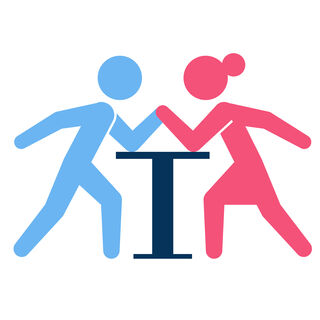Relationships
How Feeling Powerless Can Chip Away at Romantic Relationships
When both partners feel empowered, relationship quality is usually better.
Posted June 29, 2021 Reviewed by Ekua Hagan
Key points
- For married couples, power struggles (or the lack thereof) can result in getting a divorce or living together happily.
- Power characteristics within a romantic relationship are often differentiated by researchers as "personal power" or "positional power."
- Happier couples feel equal amounts of personal power within the relationship, even if one partner has more positional power in society.

Want to increase your odds of having a happy and satisfying romantic relationship? New research suggests that when "personal power" dynamics feel balanced, couples tend to be happier, and their relationship quality (RQ) is better.
These findings (Körner & Schütz, 2021) by a pair of German researchers from Martin Luther University Halle-Wittenberg (MLU) and the University of Bamberg were published on May 17 in the Journal of Social and Personal Relationships.
Interestingly, co-authors Robert Körner and Astrid Schütz found that even when one partner has greater "positional power" (e.g., earns more money, obtained a higher degree of education, has a more prestigious job, etc.), if each partner feels that his or her personal power is equally represented within the relationship, positional power disparities don't seem to negatively impact RQ.
However, if one partner feels powerless when it comes to joint decision-making or doesn't feel like s/he has a say in what the couple does, it tends to lower RQ scores.
What Is "Experienced" Personal Power?
Previous research (Simpson et al., 2015) defined personal power in romantic relationships as "the ability or capacity to change a partner's thoughts, feelings, and/or behavior so they align with one's own desired preferences, along with the ability or capacity to resist influence attempts imposed by the partner."
If personal power is balanced within a romantic relationship, each person feels like his or her opinion matters and that their voice is being heard; this type of emotional validation boosts RQ.
On the flip side, imbalanced personal power dynamics are typically marked by one individual having more clout when deciding what the couple does together. In a heterosexual marriage, this would mean that the husband and wife don't have an equal say.
"Power is about being able to influence people and successfully resist the attempts of others to influence you," Robert Körner of the Institute of Psychology at MLU said in a June 28 news release. "The feeling of being able to make decisions in a marriage, for example, has a big influence on the quality of the relationship. Earlier studies show that there was rarely a balance of power within couples. Most of the time, men had more influence on decisions than women."
"Romantic relationships have become more equal—especially in Western societies," Körner added. "It appears that the subjective feeling of power and the feeling of being able to act freely significantly impact the quality of the relationship."
If Both Partners Feel a Sense of Personal Power, Relationship Quality Is Higher
For this study, Körner and Schütz surveyed 181 heterosexual couples who were married or had been living together for at least a month. Respondents were between the ages of 18-71 and had been in a romantic relationship with their significant other (or husband/wife) for about eight years, on average.
The self-reported surveys included a variety of questions designed to measure overall relationship quality as indexed by things like admiration for one's partner, commitment, willingness to invest in the relationship, feelings of oppression or constraint, trust, and sexual satisfaction. "We also calculated the balance of power to investigate the extent to which the traits of each partner were similar to each other," Körner said in the news release.
The latest (2021) research into how the balance or imbalance of power affects relationship quality among heterosexual couples in Western society suggests that happy couples tend to feel an equal sense of personal power. On average, disparities related to positional power don't seem to have a negative impact on relationship quality.
"Apparently, it is not objective, positional power but subjective, experienced power that is relevant to overall relationship quality. Furthermore, what matters most for satisfaction with the relationship is not the balance of power but rather the perceived personal level of power," the authors conclude.
References
Robert Körner and Astrid Schütz. "Power in Romantic Relationships: How Positional and Experienced Power Are Associated With Relationship Quality." Journal of Social and Personal Relationships (First published: May 17, 2021) DOI: 10.1177/02654075211017670
Jeffry A. Simpson, Allison K. Farrell, Maria Minda Oriña, Alexander J. Rothman. "Power and Social Influence in Relationships." APA Handbook of Personality and Social Psychology, Vol. 3. Interpersonal Relations (First published: January 2015) DOI: 10.1037/14344-015


